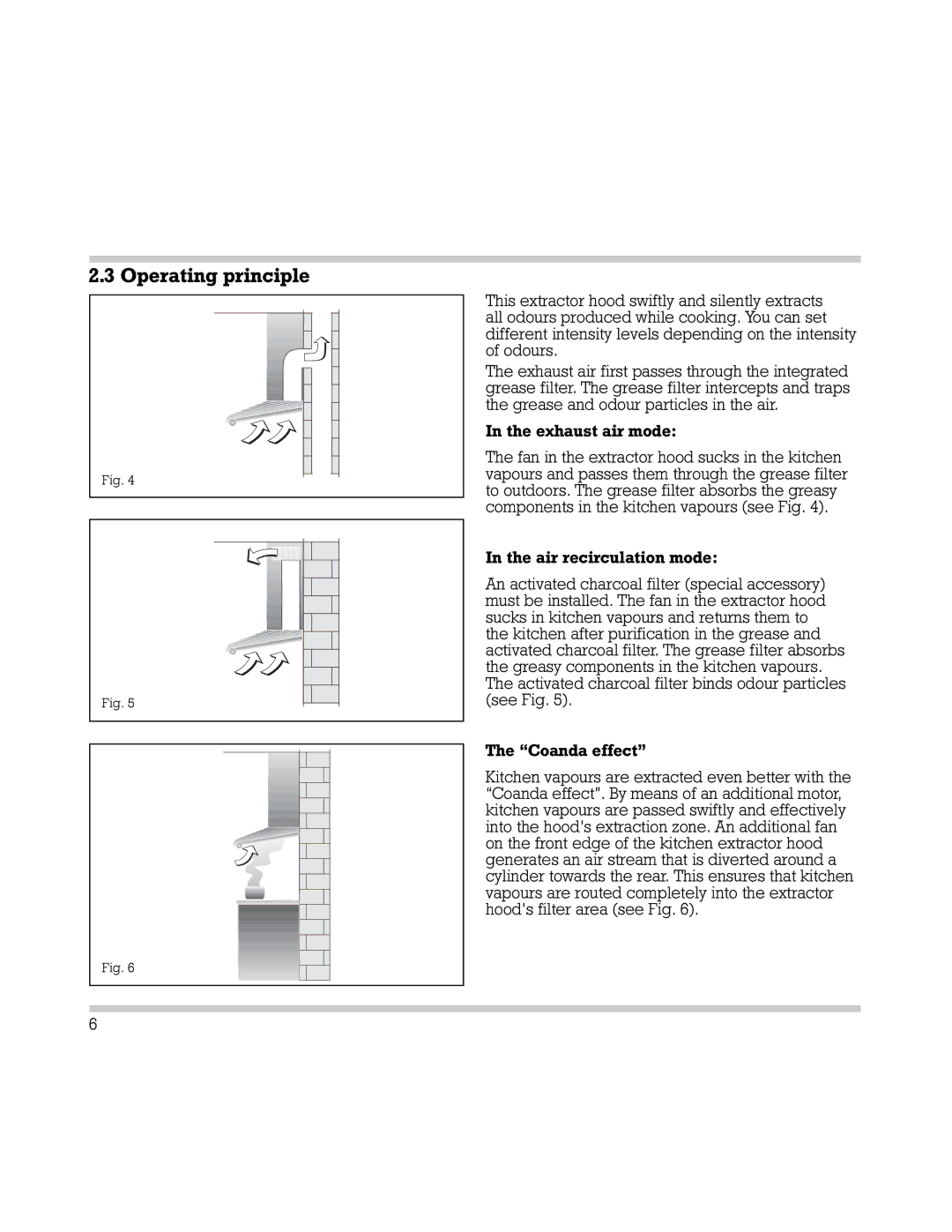
2.3 Operating principle
Fig. 4
Fig. 5
Fig. 6
This extractor hood swiftly and silently extracts all odours produced while cooking. You can set different intensity levels depending on the intensity of odours.
The exhaust air first passes through the integrated grease filter. The grease filter intercepts and traps the grease and odour particles in the air.
In the exhaust air mode:
The fan in the extractor hood sucks in the kitchen vapours and passes them through the grease filter to outdoors. The grease filter absorbs the greasy components in the kitchen vapours (see Fig. 4).
In the air recirculation mode:
An activated charcoal filter (special accessory) must be installed. The fan in the extractor hood sucks in kitchen vapours and returns them to the kitchen after purification in the grease and activated charcoal filter. The grease filter absorbs the greasy components in the kitchen vapours. The activated charcoal filter binds odour particles (see Fig. 5).
The “Coanda effect”
Kitchen vapours are extracted even better with the “Coanda effect”. By means of an additional motor, kitchen vapours are passed swiftly and effectively into the hood’s extraction zone. An additional fan on the front edge of the kitchen extractor hood generates an air stream that is diverted around a cylinder towards the rear. This ensures that kitchen vapours are routed completely into the extractor hood’s filter area (see Fig. 6).
6
